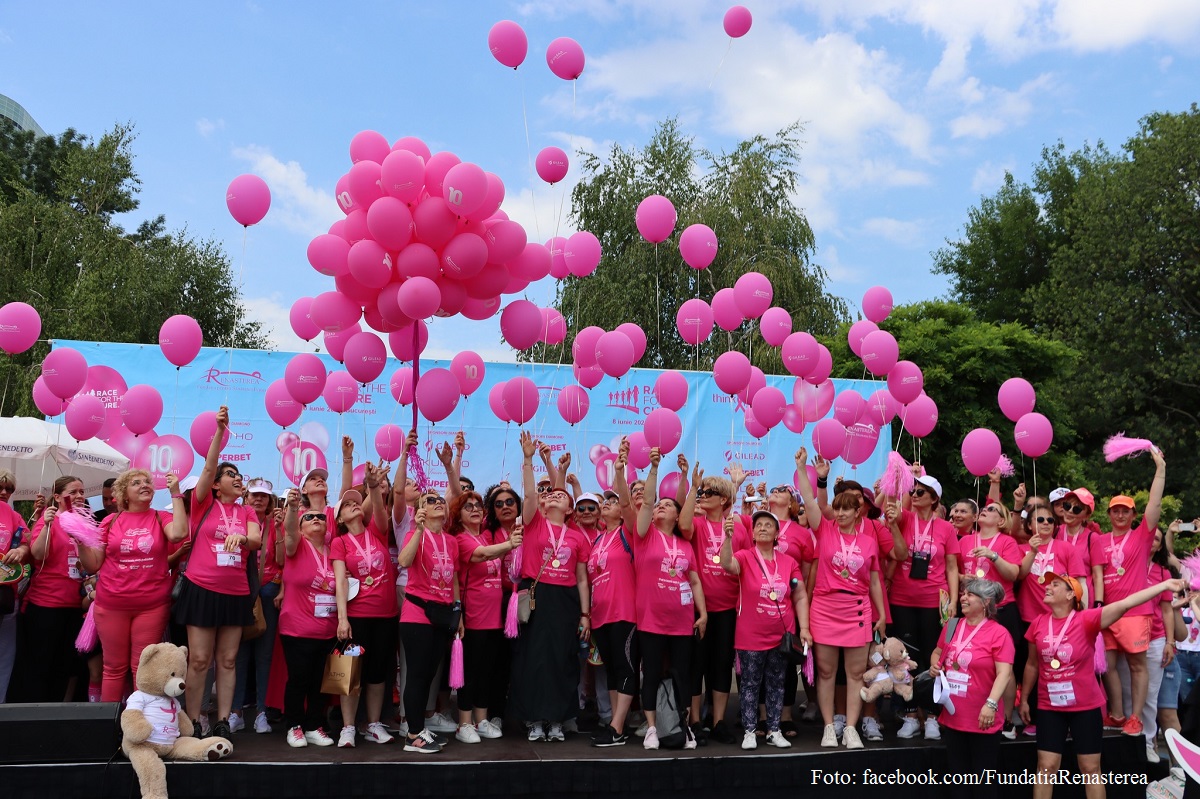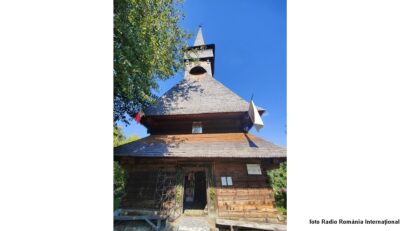Cancer – country profile
”Race for the Cure” translates into free medical tests for cancer patients.

Roxana Vasile, 19.06.2024, 14:00
Fundatia Renasterea organized, on June 8, the biggest charity race, dubbed ”Race for the Cure Romania”, to support the fight against breast cancer and promote health. The race chosen by the organizers in Bucharest covered 4 kilometers. The success of the event was due to those more than 5,000 Romanians from the country and abroad who turned their participation in the 10th edition of the ”Race for the Cure” into free medical tests for vulnerable women and for wigs made of natural hair for patients diagnosed with cancer.
The event also enjoyed the support of numerous VIPs, representatives of the Diplomatic Corps in Bucharest, schools, high schools and companies that understood the importance of involvement in such a cause, as detailed by the president of Fundatia Renasterea, Mihaela Geoana: ʺIt is, on the one hand, a good opportunity to learn, to find out what a healthy life means and what early detection and prevention means. On the other hand, however, we celebrate the winners of the fight against breast cancer and there are many of them, generally more than 100 and they have their special moment within this event. It is also a fundraising campaign, because the registration fee, which are 50 lei for adults and 30 lei for children, is used to provide free tests and mammograms through our mobile unit that goes to small towns in rural areas of the country and for providing wigs for women undergoing chemotherapy and other types of oncological treatment.ʺ
This year’s edition offered Romanians from the country and abroad, in addition to the physical presence at the race in Bucharest, the opportunity to donate for the prevention and detection of breast and cervical cancer, through the platform www.raceforthecure.eu/ro, open until the end of December. At the race, there were surprises for all age groups. The program also included a parade in dance steps, in the applause of the crowd, of cancer survivors, dressed in pink T-shirts. At the end of the event, pink balloons were released to the sky in memory of those who lost the battle with the disease.
Beyond this action promoting health through sport, fun and emotion, there is a cruel reality, as Romania ranks first, in terms of mortality, in oncological pathology, registering 48% more deaths than the European average and over 20,000 deaths which could be prevented every year. A conference was dedicated, by the Federation Cancer Patients Associations, to all survivors, on the occasion of marking this day, the first Sunday of June, but especially to those who fight the disease and also the system. The participants, from authorities, medical specialists, representatives of the pharmaceutical industry and some medical laboratories, to patients and relatives, emphasized that everyone should have the right to access medical investigations, innovative treatments and adequate medical care. Prevention is also needed.
The president of Fundatia Renasterea, Mihaela Geoană: ʺWe have, how can I say, a collaboration, in the sense that representatives of the Health Ministry, the INSP and various hospitals, participate in every event that we organize. I think that prevention should be better organized and better financed by state institutions, and that NGOs should do their part to help and offer more direct access to the target audience. Communication must be much better organized, so that it is easily understood by the public we are addressing.ʺ
On his part, the president of the Federation of Cancer Patients Associations, Cezar Irimia, says that the delay in implementing the law of the National Plan to Prevent and Combat Cancer makes victims every day, the lack of access to the latest investigations and treatments putting Romania first in the EU in terms of mortality due to oncological pathology. During the conference, the participating associations decided to take a firm stance as regards the access to genetic and molecular investigations, but also to new treatments, in order to reduce the number of deaths in Romania, as well as the 5-6-year gap compared to EU countries.
“I didn’t do enough, I tried to be your spokeswoman in the Romanian Parliament, but, unfortunately, financial resources are limited, Senator Nicoleta Pauliuc, initiator of some legislative proposals in the field of oncology, said: ”We are talking about personalized medicine, which I believe should be a national project. How do I, a Romanian, sue the Romanian state for the right to life, because there are three or four alternatives to different types of cancer, and the state tells me that ’I don’t have procedures, I can’t give you that drug’. If we have this possibility to do genetic tests, why does a Romanian woman have to go to Austria, do the tests there and then return and sue the Romanian state? Why do we need 385 days or 285 days to enter treatment? Why don’t we have the patient track? It doesn’t cost the ministry anything to do this patient track, to know, from the moment they received the diagnosis, what they have to do. (…)”
In Romania, in spite of an upward economic trend, the healthcare system continues to be underfunded. While, at present, the average allocation for health in Europe is about 10%, in Romania the percentage is 6.5%, which was the EU average about 20 years ago. As regards strictly oncological patients, Romania allocates for their care less than half of what is allocated in the European Union. Cancer is the second cause of death in Romania, after cardiovascular diseases, 1 in 6 deaths being caused by cancer. (EE)






























